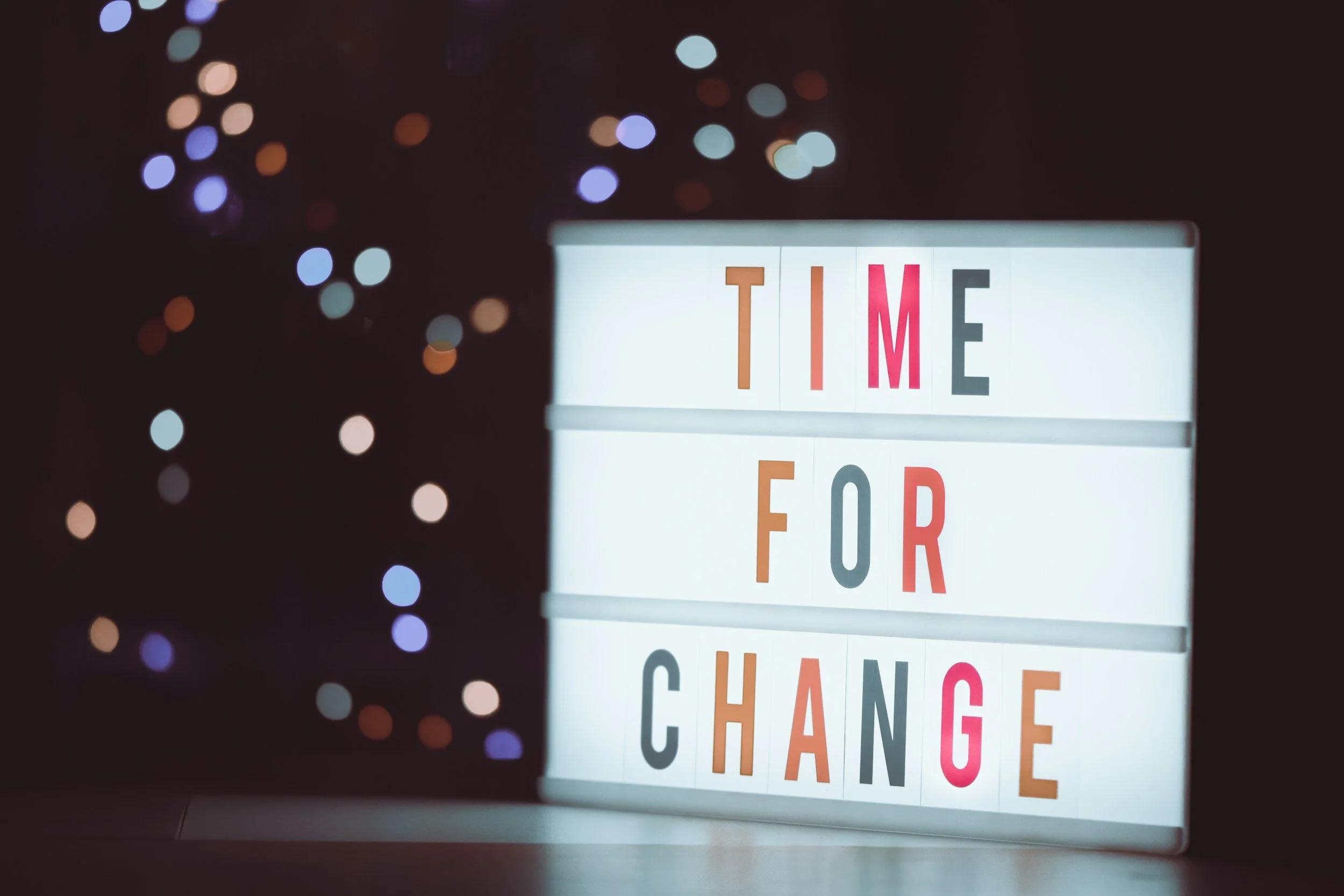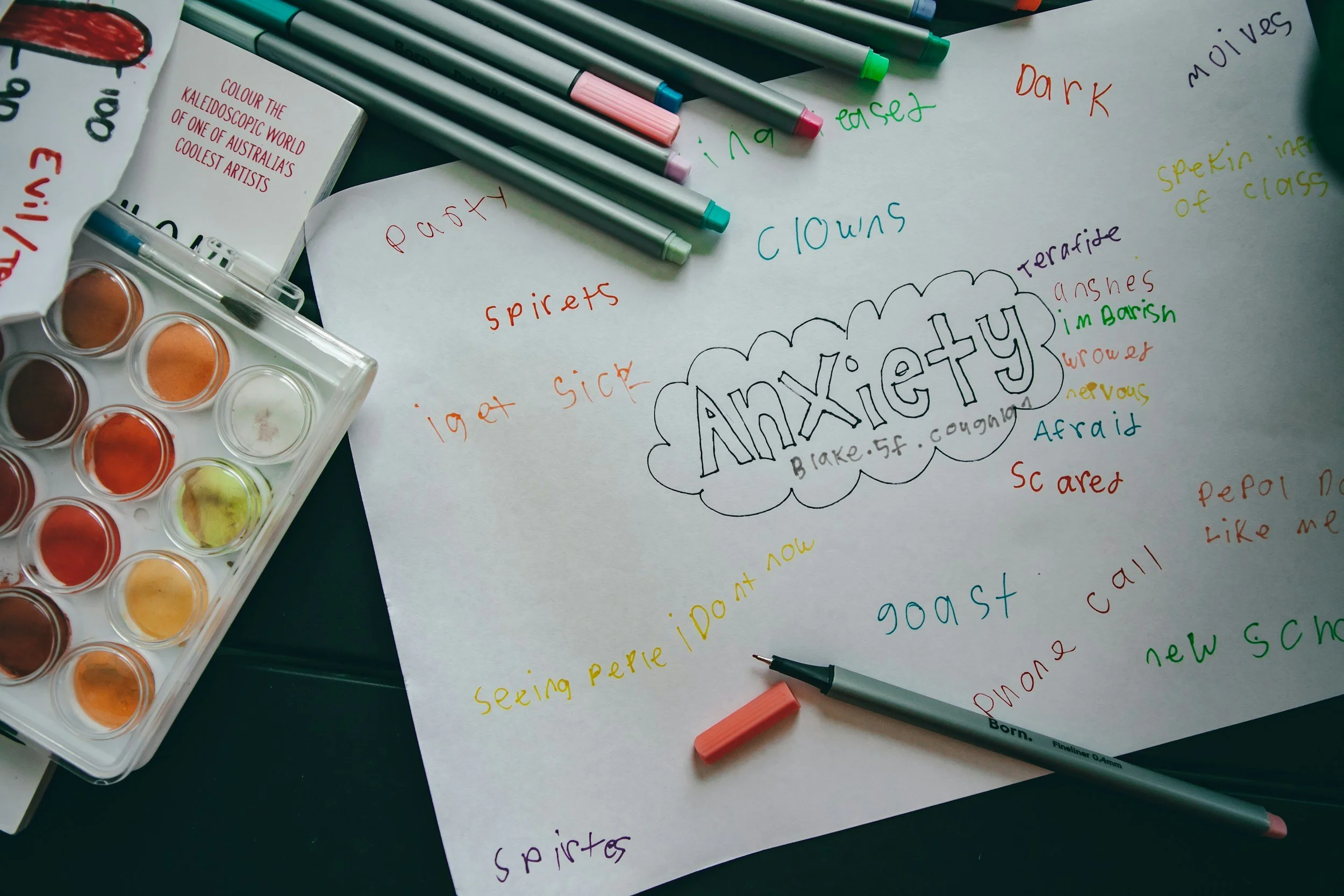
🌿 Burnout, Depression, or ADHD? How to Tell the Difference

🌿 Executive Dysfunction: Why Getting Things Done Feels So Hard (and What Actually Helps)

The Wellness Shift That Actually Lasts: Identity-Based Change

Why Women Lose Self-Trust — and How to Rebuild It

Manifestation for Women Who Want Science, Not Hype

The New Year Isn’t About Reinvention — It’s About Alignment

🌿 Telehealth Psychiatry: How Women Can Get Effective Care Remotely

🌿 Why ADHD in Women Is So Often Missed — And What to Do About It

How to Know When It’s Time to Get Help for Your Mental Health
You're managing—but something still feels off.
Maybe you’ve chalked it up to being tired. Stressed. Just going through a rough patch. You’re functioning, after all—holding down a job, checking things off your list, keeping it together for everyone else.
But behind the scenes, it feels harder and harder to keep up.
You’re not alone—and you don’t have to wait until you’re in crisis to get help.

What Is “High-Functioning” Anxiety—and Could You Have It?
Feeling anxious but still managing to keep it all together?
You’re organized. Reliable. Productive. Friends say you seem “so on top of everything.” But beneath the surface, you’re overwhelmed. Exhausted. Worried you’re one misstep away from it all crumbling.
This is what high-functioning anxiety can look like—especially for high-achieving women. It often flies under the radar because it doesn’t look like a struggle from the outside.

ADHD in Women: What It Really Looks Like
“Why can’t I just stay focused like everyone else?”
If you’ve ever asked yourself that question, you’re not alone—and you’re definitely not broken.
For many women, ADHD doesn’t look like bouncing off the walls or constant hyperactivity. It looks like overwhelm. Burnout. Shame. Starting 10 tasks at once and finishing none. Feeling like your brain is in 100 tabs but you can’t find the right one.
At The Serene Sanctuary, I specialize in working with women who have ADHD—especially those who were missed or misdiagnosed for years.

Creating a Calming Night Routine to Support Your Mental Health: Serene strategies to wind down and reset your nervous system
Many of the women I work with struggle to sleep—not because they don’t want to, but because their minds just won’t slow down. Racing thoughts, to-do lists, worries about the next day—it all shows up the moment things get quiet. If this sounds familiar, you’re not alone.

“Am I Just Burnt Out, or Is This Something More?”
You’re exhausted—but it’s more than that.
You’re not just tired. You’re drained. Snapping at people you love, forgetting simple things, zoning out mid-conversation. You’re barely making it through the day… and then beating yourself up for not doing more.
At The Serene Sanctuary, this is one of the most common stories I hear from patients.
And the question they always ask is:
“Is this burnout? Or something deeper—like depression or anxiety?”
Let’s talk about it.

Sleep & Mental Health: Why You’re Not Just “Tired”
Exhausted but wired? You’re not imagining it.
If you collapse into bed at night—only to lie awake with your mind racing, or wake up feeling just as tired as you were the night before—you’re not alone. And you’re definitely not lazy, unmotivated, or doing something wrong.
At The Serene Sanctuary, one of the first things I ask patients is:
“How have you been sleeping?”
Because sleep is not just a symptom—it’s often a root of what’s going on with your mood, focus, energy, and overall mental well-being.

How ADHD Can Look Different in Women—and Why It’s So Often Missed"
“I thought everyone felt this way.”
If you've ever wondered why you're always overwhelmed, always late, or constantly forgetting things—only to be told you're "too smart to have ADHD"—you’re not alone.
At The Serene Sanctuary, I work with many women who spent years thinking their struggles were a personal failing… when in reality, they were symptoms of undiagnosed ADHD.
For many women, ADHD doesn’t look like bouncing off the walls. It looks like perfectionism, anxiety, emotional overload, or chronic burnout.
Let’s talk about why so many women with ADHD go unnoticed—and what support can actually look like.

Why “Just Take the Meds” Isn’t Enough: A Holistic Approach to Mental Health
Medication can be a powerful part of mental health care—but it’s rarely the whole answer.
If you’ve ever felt dismissed by providers who rushed through appointments, handed you a prescription, and sent you on your way, you’re not alone.
At The Serene Sanctuary, I believe your mental health deserves more than a pill bottle. You deserve care that looks at the whole you—not just your symptoms, but your sleep, stress, habits, hormones, and daily challenges.
Let’s talk about why a holistic approach matters—and what it can actually look like in real life.

“Do I Have ADHD or Am I Just Burned Out?”: Understanding the Overlap
Most of us throw the word “burnout” around casually:
"I’m so burnt out."
"Work has me totally burnt out."
But burnout is more than just being tired. It’s a whole-body, emotional and mental experience that builds over time—and if you're like many women I work with, you’ve been living in it so long it just feels… normal.
Let’s change that.

Why Burnout Isn’t Just “Being Tired”—And What You Can Do About It
Most of us throw the word “burnout” around casually:
"I’m so burnt out."
"Work has me totally burnt out."
But burnout is more than just being tired. It’s a whole-body, emotional and mental experience that builds over time—and if you're like many women I work with, you’ve been living in it so long it just feels… normal.
Let’s change that.

Anxiety or ADHD? Understanding the Overlap (Especially in Women)
You’re constantly overthinking, easily overwhelmed, sensitive to noise or clutter, and your mind never seems to slow down. You worry a lot—but also forget small tasks. You procrastinate—but you also feel like you're always doing something.
So… is it anxiety? ADHD? Both?
This is a question many women bring into sessions at The Serene Sanctuary—and for good reason. Anxiety and ADHD frequently overlap, especially in women, and the symptoms can look nearly identical on the surface.
Let’s break it down.

What Is Burnout—and How Do You Know If You Have It?
You’re juggling a demanding career, a full calendar, and a life that doesn’t stop moving. On the outside, it might look like you’ve got it all under control—but inside, you're mentally drained, emotionally flat, and wondering how much longer you can keep pushing through.
Sound familiar? You might be experiencing burnout.